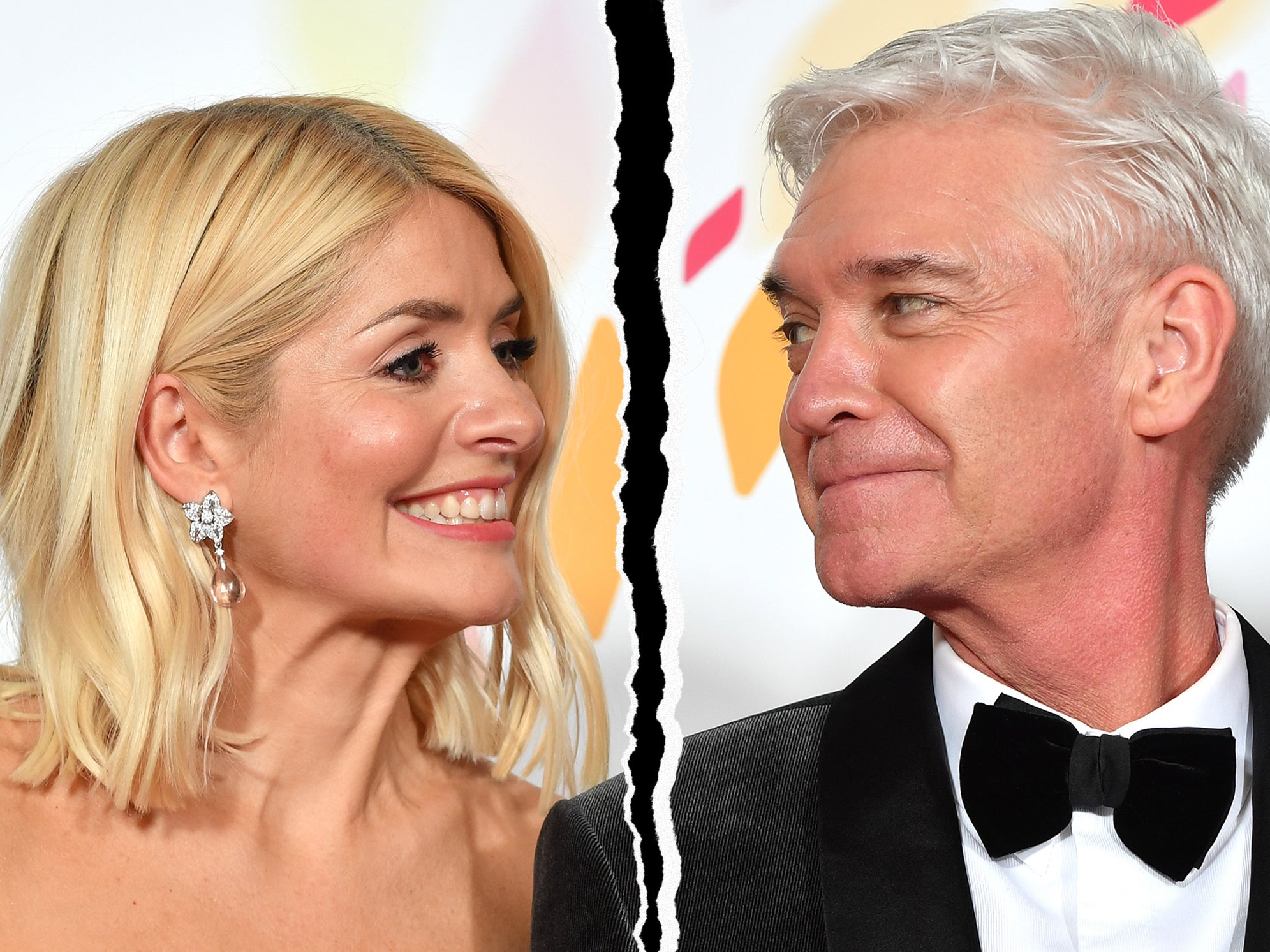Is there anything more British than Holly and Phil’s frosty fallout?
We say to colleagues that we’ll miss them, says the Very British Problems author Rob Temple, but what we really mean is, ‘thank God they’re gone and I’ve now got their parking space’


Your support helps us to tell the story
From reproductive rights to climate change to Big Tech, The Independent is on the ground when the story is developing. Whether it's investigating the financials of Elon Musk's pro-Trump PAC or producing our latest documentary, 'The A Word', which shines a light on the American women fighting for reproductive rights, we know how important it is to parse out the facts from the messaging.
At such a critical moment in US history, we need reporters on the ground. Your donation allows us to keep sending journalists to speak to both sides of the story.
The Independent is trusted by Americans across the entire political spectrum. And unlike many other quality news outlets, we choose not to lock Americans out of our reporting and analysis with paywalls. We believe quality journalism should be available to everyone, paid for by those who can afford it.
Your support makes all the difference.Holly Willoughby worked with Phillip Schofield for 13 years and said goodbye to him in 39 words. That’s a brief and very British way to say farewell. The Brits say a lot with a little. We are, to put it mildly, masters of the understatement. I should know: I wrote the book on Very British Problems (and created the Twitter account, too).
“The sofa won’t be the same without him”, concluded the ITV This Morning host in a statement posted on her Instagram, thanking Schofield for “his knowledge, his experience and his humour”. And that was that. For his part, Schofield didn’t mention Willoughby at all.
There’s a lot of double meaning involved in Brit speak. We are unsparingly sparing. Reading between the lines is therefore a national pastime. For instance, “I’m fine” can mean simply “I’m fine”, but it can also mean, “my house has just burnt down and I’ve lost a million pounds, but honestly, I’m fine, don’t worry about it. It’s all fine.”
So, Holly Willoughby’s statement could be turned into a whole thesis picking over what she could possibly have really meant. Let’s start with her first line: “It’s been over 13 great years presenting with Phil” could mean “it’s been a hell of a lot of years”. She calls Phillip Schofield simply “Phil”, which perhaps conveys the casual detachment of a miffed neighbour relieved to finally be free of having to listen to next door's awful music at 2am, or put up with his strange cooking smells. It could also just mean that she simply calls him Phil.
Nevertheless, some might sense a seething resentment here. She doesn’t say “I want to take this opportunity to thank you”, she says thank “him”. Ouch. And what does she thank him for? Not “all the laughs” or “more than I can ever say!”… no, she thanks him for “his knowledge”. This feels like the equivalent of just writing “good luck with the future” in an office leaving card. In other words: chilly.
But wait, there’s more. She thanks him for “his experience” and “his humour”. It feels like a very, very early version of ChatGPT has written this in a terrible attempt to sound human. It delivers the bare minimum of warmth and kindness. And when a Brit gives the bare minimum, they’re really giving nothing at all.
A Brit who wants to leave things on a cheery note might say “I hope we work together in the future” or, if they’re feeling particularly gracious, they’ll say “can’t wait to see what you do next!” But instead, Holly plumped for: “The sofa won’t feel the same without him.” This could be translated in many ways, but judging from the reactions I’ve seen on social media I think what a lot of Brits have actually translated it as is: “The sofa will still be here, you won’t be on it, and, oh, what a blessed relief.”
We’ve all stood with gritted teeth while the colleague who always cooked fish in the microwave and told the boss we spent too much time on Facebook slices into their “sorry you’re leaving” cake. We say to them: “We’ll miss you, this place won’t be the same without you.” But what we really mean is: “Thank God they’re gone and I’ve now got their parking space.” Holly Willoughby rounded off her goodbye with a heart emoji. Just the one, though. Not three. One measly heart. She might as well of used the poo emoji. Perhaps I’m reading far too much into this brief message. After all, that’s what British people do.
The Very British Problems Quiz Book by Rob Temple is published by Sphere and is out now



Join our commenting forum
Join thought-provoking conversations, follow other Independent readers and see their replies
Comments